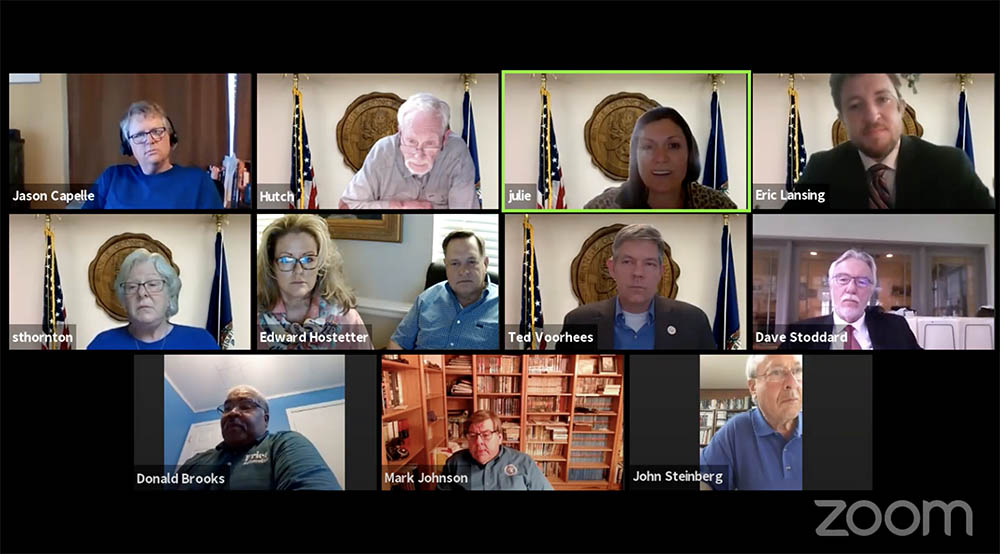
Obviously, a lot has changed since March, when you last received a copy of the Piedmont View. Soon after, shut-down orders went into place and, like me, you might have felt like you were trapped in a bad episode of The Twilight Zone. Suddenly, any trip outside of the house came with a risk analysis. Adjustments like teleworking, or worse, changes in employment status, disrupted normal routines. Things we may have taken for granted, like access to schools and daycare, visits with elderly relatives and yes, even toilet paper, were off the table. Clearly, these have not been normal times. But that wasn’t always evident looking at local government agendas.
Localities across the commonwealth wrestled with how to continue operations during a declared state of emergency. Further complicating matters, the governor’s initial stay-at-home order went through June 10, placing limits on people’s ability to engage in any public process. Given this, local governments raised important questions, including: 1) what issues should be addressed; 2) how do we provide a robust public process without in-person meetings; 3) what are the best technologies we can deploy; 4) how do we serve people without access to technology; and 5) how do we maintain an equitable process for our citizens and businesses?
Early on, some of these questions were raised with Virginia Attorney General Mark Herring. In a March 20 opinion, the attorney general pointed to several sections of Virginia Code, including §15.2-1413, which allows a local government to enact an emergency ordinance during a disaster. Such an ordinance allows localities to do things like hold remote meetings and make decisions on non-essential issues, all during a period when the normal public process is suspended. However, and importantly, the attorney general’s opinion included cautionary language stressing that localities should stick to issues and decisions that are “immediate and necessary.”
Unfortunately, many localities used the broad language of §15.2-1413 to move forward with arguably non-essential decisions. These decisions included rezonings and special use permit proposals at a time when citizens were, at best, distracted, and at worst, unable to participate. And while we may be getting closer to some semblance of our prior lives, our local governments are still operating under continuity of government ordinances.
Although some localities and agencies are employing best practices as they understand them and are largely sticking to the matters that are immediate and essential, none of this was or is being done in a consistent manner.
What has PEC been doing?
- We have written to the governor (twice) and other state leaders. We have asked them to address the inadequacies of the state code and to provide localities with guidance on best practices, including the importance of sticking to essential decisions, at least until the stay-at-home order was lifted or localities were not operating under an emergency ordinance.
- We have educated our communities and partners to the problems associated with the continuity of governance ordinances, including limits to participation for those who do not have internet due to their place of residence or economic situation, among others.
- We have tracked and commented on issues as localities pursued them, engaged with citizens by email and phone, encouraging them to participate. We have also reminded these localities that their citizenry needs them to stick to essential matters while stay-at-home orders are in place or so long as local governments are operating under §15.2-1413.
As always, PEC strives to be there for you and your community, weighing in on important matters and providing you with the information necessary to stay engaged. We do this because, as you almost certainly know, what matters most to elected officials is hearing from their constituents directly.
Please reach out to your local PEC field representative by phone or email if you want to learn more or have questions on how your own local government is operating. We will continue to press for policies and changes to the state code that ensure we come out of the pandemic with an enhanced public process, making the best use of digital technologies and providing all of our citizens an opportunity to participate in their government.
This article was featured in our Summer 2020 member newsletter, The Piedmont View.
